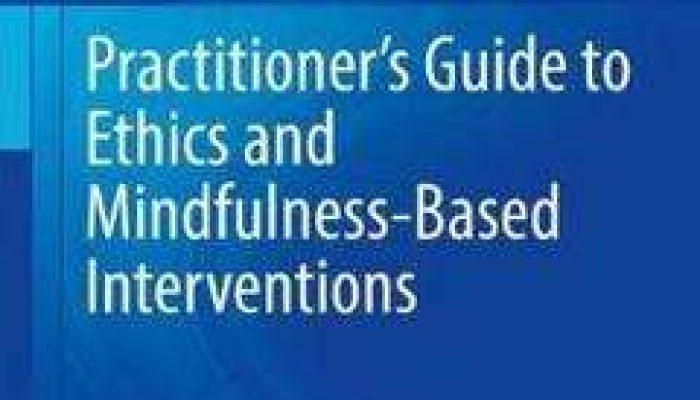In the bustling corridors of modern professional life, where deadlines loom and expectations soar, a quiet revolution is unfolding—a revolution centered on the practice of mindfulness. As this ancient discipline finds its way into boardrooms and break rooms, a debate simmers beneath its tranquil surface: How does mindfulness intersect with the principles of professional ethics? Proponents argue that mindfulness fosters a sense of presence and empathy, essential for ethical decision-making. Critics, however, caution against its potential misuse as a tool for complacency or as a veneer for corporate agendas. In this exploration, we delve into the intricate dance between mindfulness and professional ethics, examining the promises and pitfalls of this evolving dialogue. Join us as we navigate this nuanced landscape, where the quest for inner peace meets the moral compass of the workplace.
Navigating the Intersection of Mindfulness and Ethical Practice
At the crossroads of mindfulness and professional ethics, individuals find themselves balancing personal well-being with moral responsibilities. Mindfulness, often characterized by heightened awareness and presence, encourages professionals to engage in reflective practices that align with their core values. This alignment can lead to a more ethical approach in decision-making processes. However, integrating mindfulness into professional settings raises questions about its impact on ethical standards.
- Intentionality: Mindfulness promotes intentionality, which can enhance ethical decision-making by fostering deeper consideration of consequences.
- Objectivity: Practicing mindfulness can aid in maintaining objectivity, reducing bias in professional judgments.
- Compassion: Mindful practices can cultivate compassion, encouraging professionals to act in the best interest of clients and colleagues.
While the benefits are evident, critics argue that mindfulness, when misapplied, may serve as a tool for justifying ethically questionable decisions under the guise of self-care. The challenge lies in ensuring that mindfulness enhances, rather than undermines, ethical standards within professional contexts.

Balancing Inner Peace with Professional Responsibility
In the modern workplace, the intersection of mindfulness practices and professional ethics can often present a paradox. Professionals are encouraged to cultivate inner peace through mindfulness, yet they must also adhere to stringent ethical standards that demand accountability and transparency. This delicate balance requires a nuanced understanding of how these seemingly disparate elements can coexist harmoniously. By integrating mindfulness into daily routines, professionals can enhance their focus, reduce stress, and improve decision-making, all while upholding their ethical obligations.
To navigate this balance, consider the following approaches:
- Setting Boundaries: Establish clear boundaries between personal mindfulness practices and professional responsibilities to ensure that ethical standards are not compromised.
- Mindful Decision-Making: Use mindfulness techniques to cultivate a present and focused mindset, leading to more ethical and thoughtful decisions.
- Continuous Reflection: Regularly reflect on how personal mindfulness practices influence professional behavior, ensuring alignment with ethical principles.
By embracing these strategies, individuals can foster an environment where inner tranquility supports, rather than conflicts with, professional integrity.

Evaluating the Impact of Mindfulness on Decision-Making
As the practice of mindfulness continues to gain traction within professional settings, its potential influence on decision-making processes has become a focal point of discussion. Proponents argue that mindfulness can enhance ethical decision-making by fostering a heightened state of awareness and presence, which may lead to more thoughtful and deliberate choices. This mindful approach could potentially result in decisions that are more aligned with personal and organizational values, ultimately promoting integrity and transparency.
- Increased Awareness: Mindfulness encourages individuals to remain present, reducing impulsivity and allowing for a comprehensive evaluation of the potential outcomes.
- Empathy Enhancement: By cultivating empathy, mindfulness may improve understanding of diverse perspectives, leading to more inclusive decisions.
- Stress Reduction: Lower stress levels can lead to clearer thinking and better decision-making under pressure.
However, critics caution that the integration of mindfulness in decision-making processes is not without its challenges. They argue that while mindfulness may improve focus and reduce stress, it does not automatically equate to ethical decision-making. The concern lies in the possibility of mindfulness being used as a tool for self-justification, rather than genuinely guiding ethical choices. Thus, while mindfulness holds promise, it should be complemented by robust ethical frameworks to truly enhance decision-making within professional environments.

Recommendations for Integrating Mindfulness in Ethical Guidelines
Incorporating mindfulness into professional ethical guidelines can offer a fresh perspective on decision-making and behavior. Mindfulness encourages professionals to remain present and fully engaged in their tasks, which can enhance their ability to make ethical decisions. By fostering a culture of awareness and reflection, mindfulness can help professionals recognize potential ethical dilemmas before they escalate. This approach can also lead to more empathetic interactions with clients and colleagues, promoting a more respectful and inclusive work environment.
- Increased Awareness: Mindfulness practices can heighten awareness of one’s thoughts, emotions, and biases, allowing for more thoughtful and ethical decision-making.
- Emotional Regulation: By practicing mindfulness, professionals can better manage their emotional responses, reducing the risk of unethical behavior driven by stress or pressure.
- Enhanced Focus: Mindfulness can improve concentration, ensuring that professionals fully consider the ethical implications of their actions.
- Empathy and Compassion: Regular mindfulness practice can cultivate empathy, leading to more ethical interactions and decisions that consider the well-being of others.
By integrating these practices into ethical guidelines, organizations can create a framework that supports ethical behavior and decision-making, ultimately fostering a more ethical professional environment.
The Conclusion
As we draw the curtains on the intricate tapestry of mindfulness and professional ethics, it becomes clear that this dialogue is far from over. The interplay between maintaining an inner calm and navigating the external demands of professional life continues to evolve, inviting us to ponder the delicate balance between personal well-being and ethical responsibility. Like a river carving its path through varied terrain, the discourse on mindfulness and ethics flows onward, shaping and reshaping the landscape of professional practices. As we step back, we are reminded that this conversation is not merely academic; it is a reflection of our collective journey toward a more conscious and conscientious future. Let us remain open, curious, and engaged, ever mindful of the ethical paths we choose to tread.
